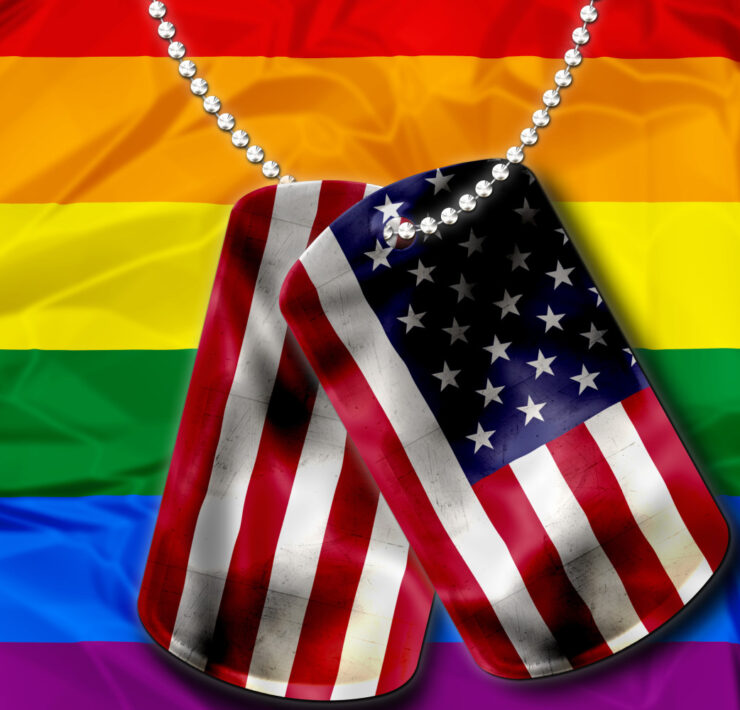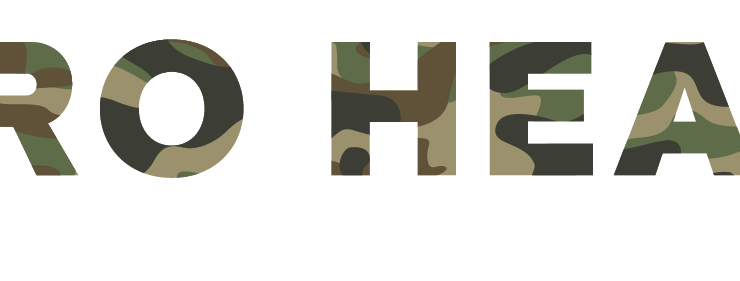Local gay vet will return to military service after DADT discharge

“I still, to this day, just can’t wrap my head around the thought process of why,” says Smith, reflecting on that day in 2002 when his career in the Air Force came to an abrupt end. “Why did this have to happen? I always exceeded my performance evaluations. I always went above and beyond.”
Born and raised in the small town of Potosi, Missouri, Smith was the first in his family to enlist in the military. He joined in 1999, and the Air Force trained him as a firefighter and paramedic. He was stationed with the 45th Space Wing Space Shuttle Support Team at Patrick Air Force Base in Florida. Smith dreamed of one day training to be a pilot, but his plans were shattered in 2001 when he was called into his first sergeant’s office.
“My commanding officer received an anonymous email,” says Smith. “To this day, I still don’t know who it came from.”
The email claimed Smith was gay, and the Air Force launched an investigation. Smith was interviewed by a captain, a rocket launch specialist assigned to the case. “He did all the things you weren’t supposed to do,” says Smith. “He asked me if I was gay, if I’d ever been to a gay bar, [if I’d ever] had sex with a girl.”
Smith answered honestly, feeling it was important to adhere to one of the Air Force’s core values: Integrity first. 34 airmen he worked with at the squadron’s fire department — including the fire chief — wrote letters of support regarding Smith’s exemplary military service. Still, in April of 2002, Smith was discharged from the Air Force under the military’s Don’t Ask, Don’t Tell policy (DADT). He never saw the email that ended his military career.
Smith was represented by the nonprofit, Servicemembers Legal Defense Network (SLDN), and received an honorable discharge, which allowed him to keep most of his veteran benefits — with the exception of his education tuition assistance, withheld because Smith’s separation from the military was not voluntary.
“I would be about four years from retirement,” says Smith, reflecting on how different his life would be if he was still in the Air Force. “I went through different stages of anger and denial, and I finally had to reason at some point that the only thing I can do is be part of something that helps change it.”
Smith launched his post-military life as an advocate for change, traveling across the nation, sharing his story, and raising funds to support the work of SLDN. More than 14,000 servicemembers were discharged under DADT, signed into law by President Bill Clinton in 1993. In January of 2010, President Obama announced in a state of the union address that he would end DADT, and on December 18, 2010, the US Senate voted to repeal the 17-year-old policy.
“I remember where I was the day it happened,” says Smith, who was working as a flight paramedic in St. Louis at the time. “As a matter of fact, as the news came on, we were getting a flight request, so I had to catch the rest of the news story when we dropped the patient off at the hospital.”
After finishing his graduate degree at Lindenwood University in 2012, Smith moved to Denver for a job and excitedly began the process of rejoining the military — this time as an officer in the Air Force Reserves. But Smith ran into more road blocks. Though qualified as a paramedic and firefighter and having a master’s degree in healthcare management, he was told he was unqualified. Luckily, the Air Force recruiter happened upon Smith’s file.
“The recruiter reached out to me and said, ‘I was just blown away that they disqualified you, because you’re overqualified.’” Smith’s application was then rejected because of medical issues he had in the ‘90s. “I had stomach problems that I disclosed back when I enlisted,” says Smith. “And I got approved then, no problem.” His recruiter was able to issue a medical waiver, and Smith was approved for commissioning by the Secretary of the Air Force on May 14.
He will be sworn in at Buckley AFB.
“It was a pretty surreal experience,” says Smith, reflecting on the phone call he received from his recruiter. “I was caught off guard. I had been told no so much. As soon I hung up the phone I called my partner, Matt, and of course he was really excited and supportive.”
One of Smith’s greatest sources of strength has been his aunt, the first person he contacted when he was kicked out of the military. “She actually emailed me back almost immediately and said, ‘I known you’ve been gay your whole life. I love you for who you are and the person you’ve become.’” Then she gave him some advice Smith follows to this day. “She said, ‘Don’t let this one event set the course for the rest of your life. Times change, people change, and they will see they’ve made a big mistake, and one day you will get the opportunity to show them.’”
Smith will be a first lieutenant at Peterson AFB with the 34th Aeromedical Evacuation Squadron. “The biggest thing I’m looking forward to is the culture and being a part of something much bigger than myself.”
Despite the repeal of DADT, many LGBT servicemembers still face challenges. Countries such as Japan and Germany do not recognize same-sex marriage, revoking exemptions for spouses of gay and lesbian servicemembers regarding visa and passport requirements. Idaho recently denied a lesbian veteran the right to be buried with her wife in a veteran cemetery. Transgender servicemembers are still banned from serving openly.
Smith is optimistic that total LGBT equality in the military will one day be a reality, and that veterans and servicemembers who are discriminated against should continue to fight for change. “You just can’t give up. I think the biggest thing I can say — and I remember this from my aunt — is don’t let it define the person you are.”
What's Your Reaction?
Greetings. I’m Mike. People call me Mike. I’m just a gay guy trying to be creative before I’m kicked off this spinning, planet-sized spaceship hurdling through the void of space. Writing and photography are the creative outlets I spill my brain into when mental monsters start clawing at the back of my eyes. I only hope these articles provide readers with a few insights I’ve carefully gathered in cupped hands, cracked hands that have dueled for decades with these nebulous shadows that haunt so many lives. Plus, writing is a great way to pass the time on this planet-sized spaceship hurdling through the void of space.










